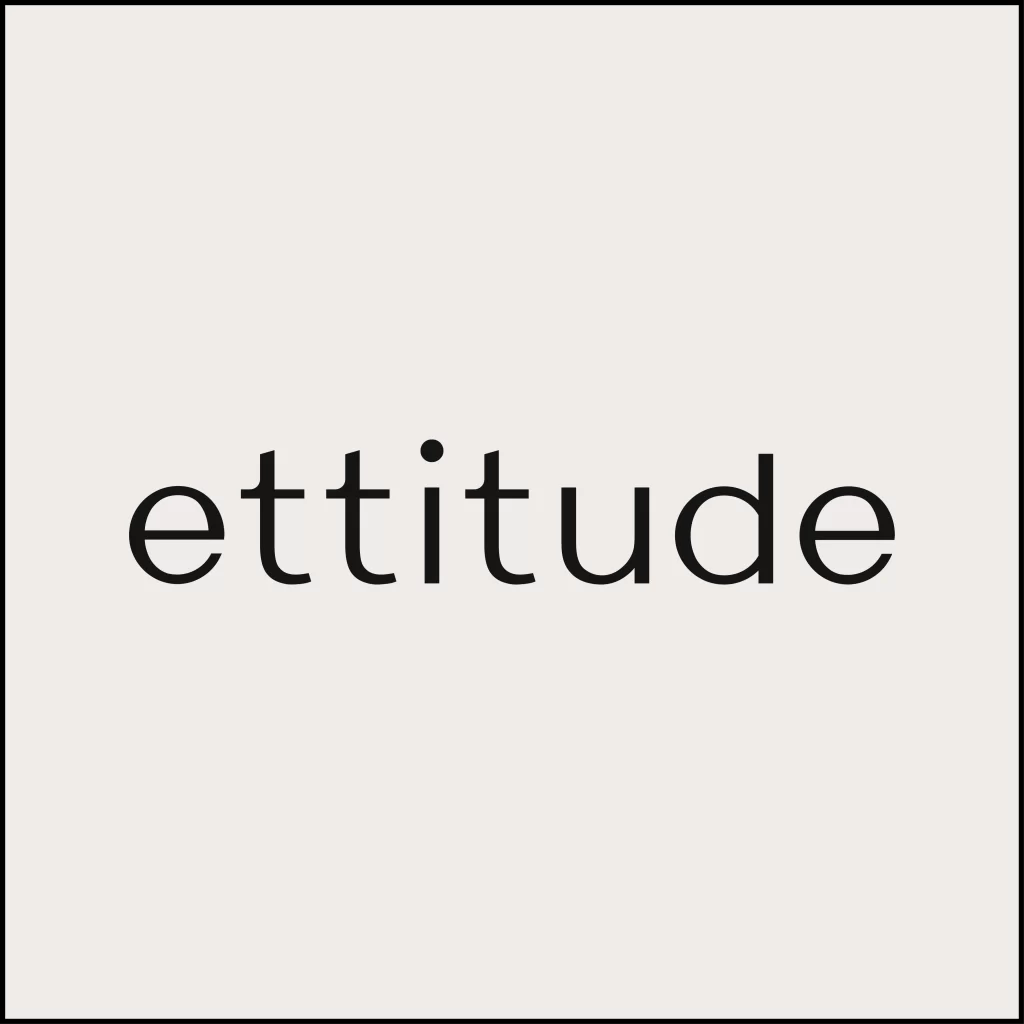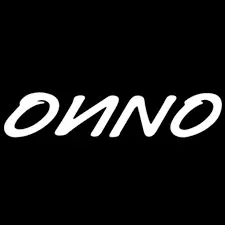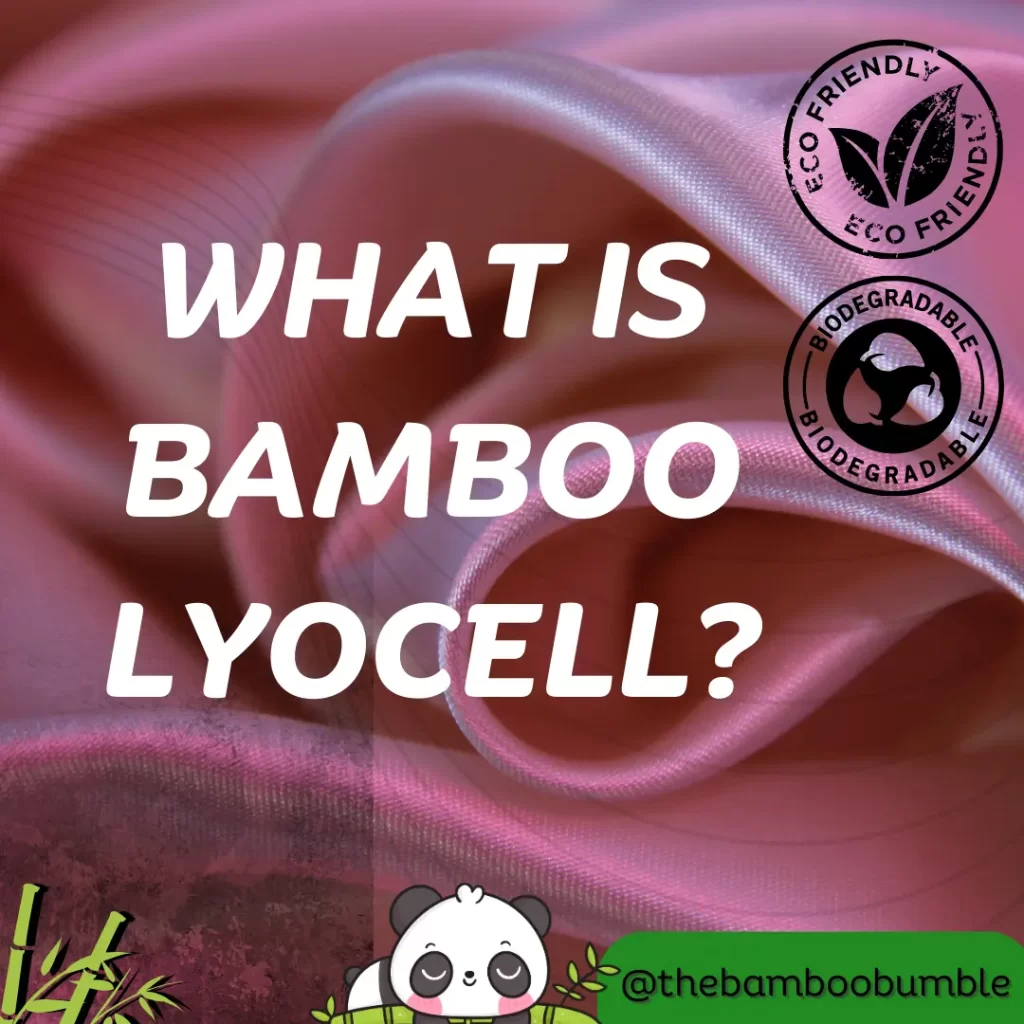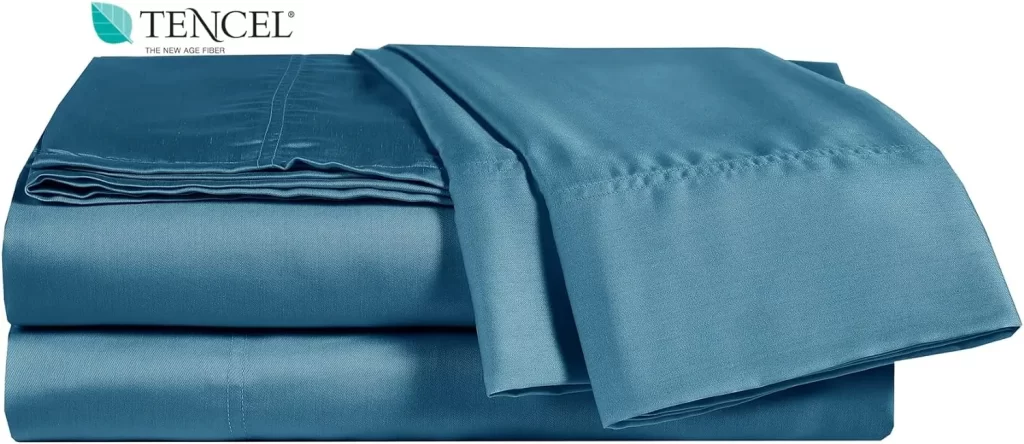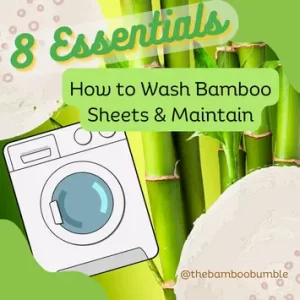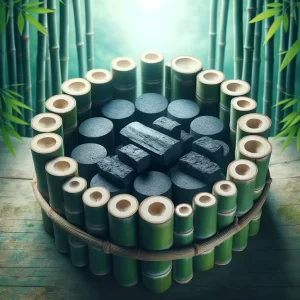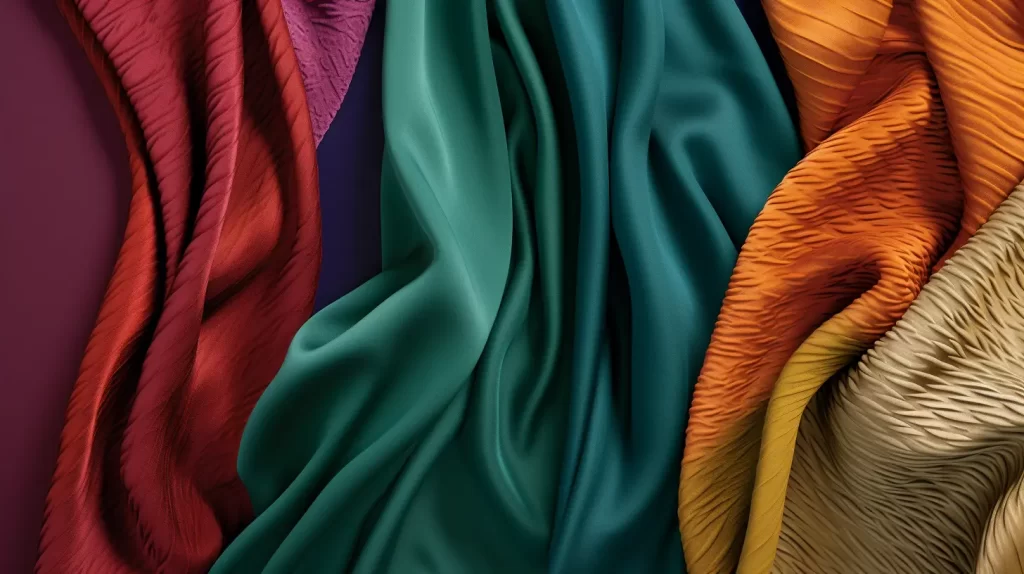
Demystifying Tencel, Lyocell, and Bamboo Lyocell: What’s the Difference?
Hey eco-conscious friends! Ever stared at a label and wondered what the heck the difference is between Tencel, Lyocell, and Bamboo Lyocell? Let’s break it down!
Think of Tencel as a fancy brand name for Lyocell. The brand name is owned by Lenzing AG. Lyocell is the generic term for an eco-friendly fiber made from wood pulp (think sustainable!). Then, Bamboo Lyocell takes things a step further, using bamboo instead of wood.
Still lost? Don’t sweat it! This article will be your guide to these amazing fibers. We’ll answer all your burning questions and help you make informed choices about your clothes and textiles.
So, who’s ready to unravel the mysteries of Tencel, Lyocell, and Bamboo Lyocell? Let’s go! ✨
Shop Top Bamboo Lyocell Brands!
Table of Contents
Introduction
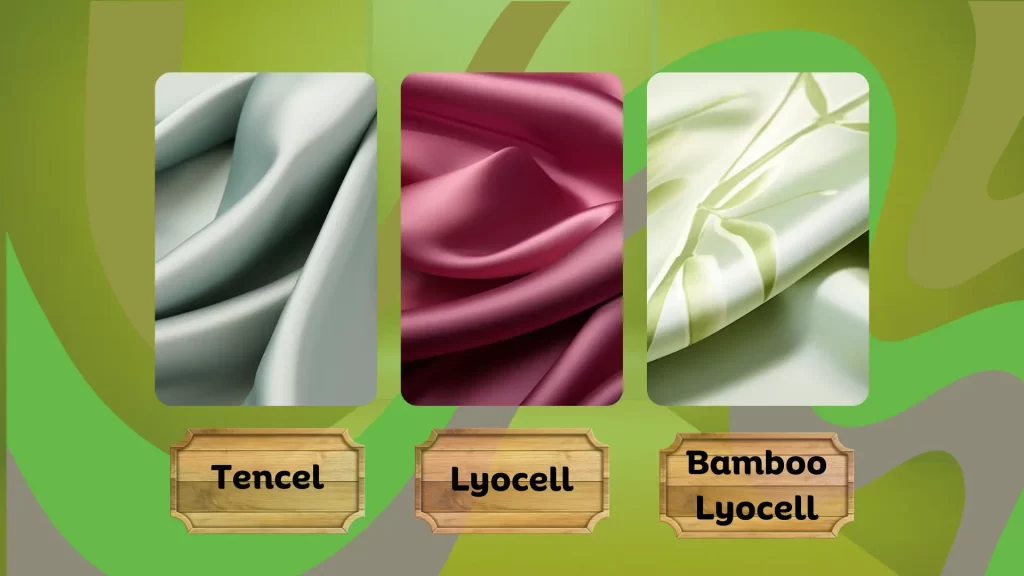

Hey fashion lovers and eco-warriors! Want to feel good about what you wear AND do good for the planet? Then buckle up!
Let’s talk about Tencel, Lyocell, and Bamboo Lyocell – the sustainable fabric trio that’s taking the world by storm.
First, let’s bust some myths:
- Tencel? Not a magic spell, but actually a brand name for Lyocell! Think of it like Kleenex for tissues.
- Lyocell? The generic term for this eco-friendly fabric made from wood pulp, think comfy and breathable!
- Bamboo Lyocell? This one uses bamboo pulp instead of wood, making it super sustainable and fast-growing!
But why choose these over your regular cotton t-shirt?
These sustainable fabric options are:
- Soft as a cloud: Perfect for sensitive skin and even your little ones. ☁️
- Breathable like a summer breeze: Say goodbye to sweat stains!
- Durable enough for your wildest adventures: Don’t worry, they’ll keep up with you.
- Eco-friendly heroes: They save water, reduce waste, and protect our planet.
So, what are you waiting for?
Join the sustainable fashion revolution and discover the magic of Tencel, Lyocell, and Bamboo Lyocell! ✨
Demystifying Tencel – A Brand of Lyocell Fiber
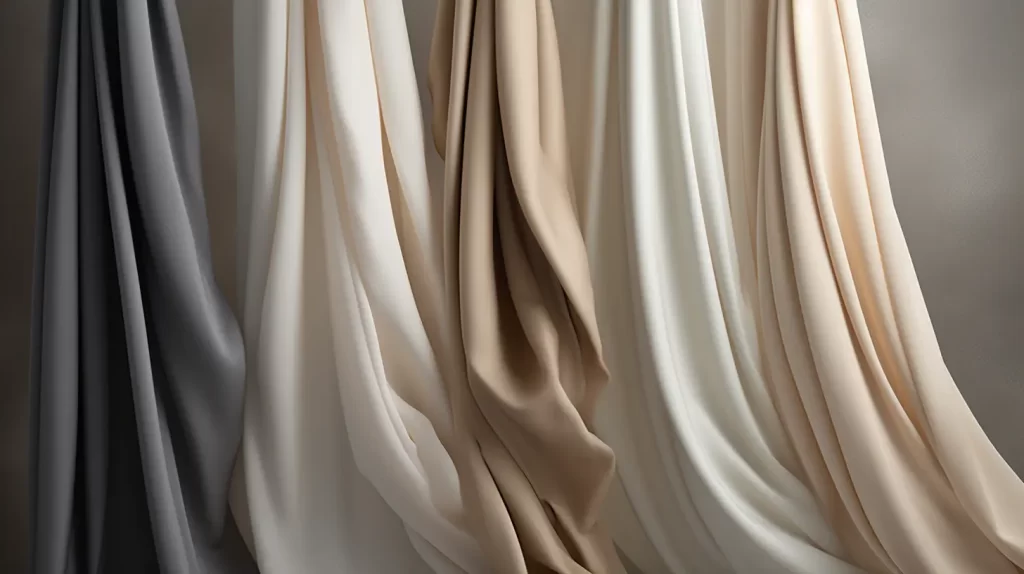

Let’s turn the spotlight on Tencel, the leading brand of Lyocell fiber that’s rocking the eco-conscious fashion scene!
Here’s why Tencel should be your new BFF:
- Softness like a cloud: Tencel is unbelievably soft and gentle on your skin, making it perfect for everything from comfy tees to luxurious bedding.
- Breathes like fresh air: Say goodbye to sweaty discomfort! Tencel wicks away moisture like a champ, keeping you cool and dry all day long.
- Eco-warrior extraordinaire: Tencel is made from sustainably managed forests and uses a closed-loop process that’s kind to the planet.
- Biodegradable bonus: Tencel breaks down naturally without polluting the environment, making it a guilt-free choice.
- Versatile chameleon: Tencel blends seamlessly with other fibers like cotton or polyester, creating endless possibilities for fashion and home goods.
- Durable champion: Tencel doesn’t back down from wear and tear, staying strong and vibrant for years to come.
What is Lyocell? – The Generic Term for Eco-Friendly Fiber
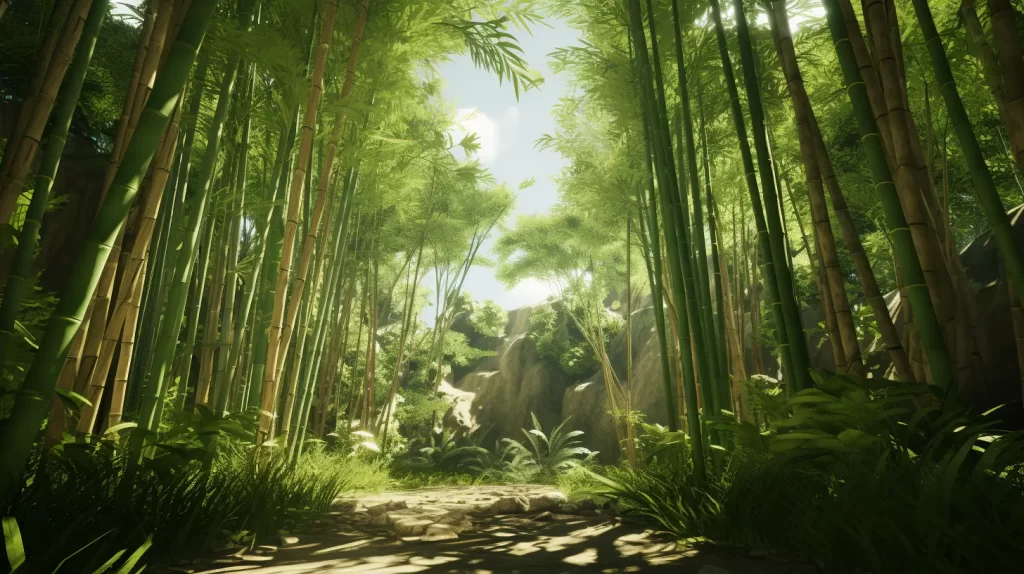

Lyocell, being the generic term for eco-friendly fiber, offers a wide range of sustainable options for clothing and home textiles. This innovative material is made from wood pulp, most commonly sourced from eucalyptus trees. The production process of lyocell involves using a closed-loop system, where the solvent used to dissolve the wood pulp is recycled and reused, minimizing waste and environmental impact. Lyocell is known for its softness, breathability, and moisture-wicking properties, making it a popular choice for clothing and bedding. It is also hypoallergenic and resistant to bacteria, making it suitable for sensitive skin. Additionally, lyocell is biodegradable, meaning it can break down naturally without harming the environment. With its eco-friendly qualities and versatility, lyocell is an excellent option for those seeking sustainable and comfortable textile alternatives.
Bamboo Lyocell – Bamboo-Derived Lyocell
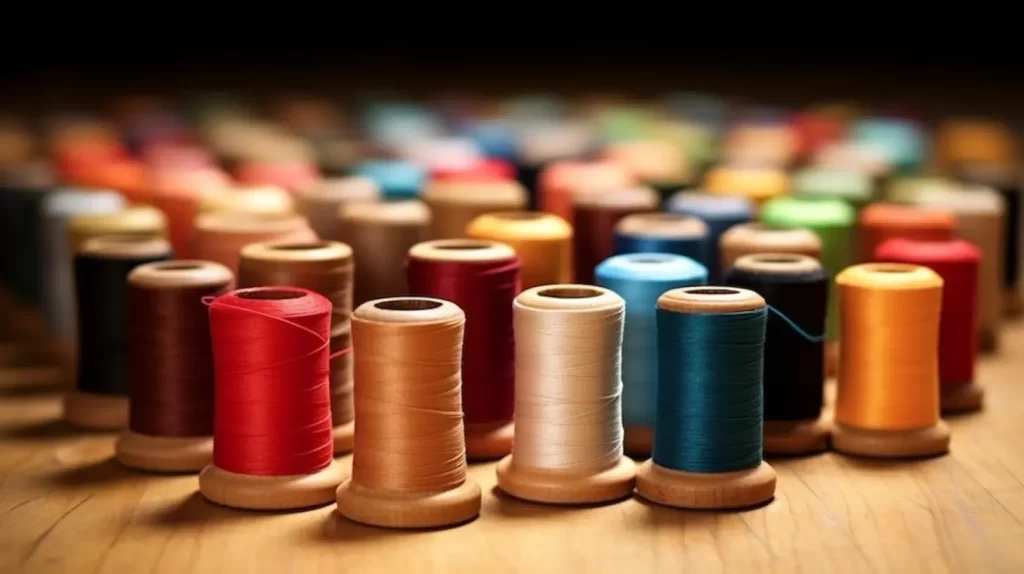

Remember Tencel, the ultimate eco-friendly fabric hero? Well, imagine its twin sibling, equally soft and sustainable, but with a unique twist: Bamboo Lyocell!
Made from the fast-growing and renewable resource of bamboo, Bamboo Lyocell boasts all the amazing benefits of Tencel, plus a few extra tricks up its sleeve:
- Even faster growth: Bamboo grows much faster than trees, making it a more sustainable resource for fabric production.
- Antibacterial superhero: Bamboo naturally contains antibacterial properties, keeping your clothes fresh and odor-free.
- Super soft: Similar to Tencel, Bamboo Lyocell is known for its luxurious softness and gentle touch.
- Breathable champion: This fabric wicks away moisture effortlessly, keeping you cool and comfortable throughout the day.
- Hypoallergenic friend: Bamboo Lyocell is perfect for sensitive skin, as it’s gentle and hypoallergenic.
- Biodegradable champion: Just like Tencel, Bamboo Lyocell can break down naturally without harming the environment.
So, if you’re looking for a fabric that’s:
- Eco-conscious: Made from a renewable resource and produced using a closed-loop system.
- Soft and comfortable: Perfect for sensitive skin and hot weather.
- Antibacterial and odor-resistant: Naturally fights bacteria and keeps your clothes smelling fresh.
- Biodegradable: Won’t leave a trace on the environment when you’re done with it.
Then look no further than Bamboo Lyocell!
Here are some of our favorite Bamboo Lyocell products on Amazon!
Shop Top Bamboo Lyocell Brands!
The Final Verdict: Tencel vs. Lyocell vs. Bamboo Lyocell


Let’s recap.
Think of it like this:
- Tencel is the brand name (owned by Lenzing AG) for a specific type of lyocell fabric. It is a widely recognized brand within the lyocell category. Again, it’s like the Kleenex of tissues.
- Lyocell is the generic term for any fabric made using a specific process (see our post on Bamboo Lyocell to get additional details on the process) that dissolves cellulose fibers and spins them into yarn. Think of it as the umbrella term that encompasses Tencel and other lyocell fabrics.
- Bamboo Lyocell is a type of lyocell fabric, but with a twist! It’s made from bamboo fibers, a fast-growing and renewable resource, offering additional environmental benefits.
Here’s a quick recap of their key differences:
| Fabric | Source | Unique Properties |
| Tencel | Various wood pulp sources including eucalyptus | Softness, breathability, moisture-wicking |
| Lyocell | Various wood pulp sources | Varies depending on the specific wood type |
| Bamboo Lyocell | Bamboo fibers | Fast-growing, renewable resource, antibacterial properties, Soft, breathable, moisture-wicking |
Conclusion
So what’s our verdict? Which fabric would we select as part of our wardrobe and other textile needs? For us, at The Bamboo Bumble, we love bamboo! 🐼 🎋 While the other fabrics are still made in very sustainable processes, we still just love the fast growing nature of bamboo, bamboo production, and the impact on our carbon footprint. By selecting sustainable materials for our products, we can be stylish and lower our impact on the Earth.


Bamboo FAQ
Q: What are the differences between Tencel, Lyocell, and Bamboo Lyocell fabrics?
A: Tencel, Lyocell, and Bamboo Lyocell are all types of sustainable fabrics derived from natural sources, but they differ in terms of the original source material and manufacturing processes. Tencel is made from various wood including eucalyptus, Lyocell can be made from various types of wood, and Bamboo Lyocell is made from bamboo plants.
Q: How do Tencel, Lyocell, and Bamboo Lyocell compare to traditional fabrics like linen or rayon?
A: Tencel, Lyocell, and Bamboo Lyocell are known for their eco-friendly production processes and sustainable sourcing, in contrast to traditional fabrics like linen or rayon, which may have a higher environmental impact.
Q: What are the environmental benefits of using Tencel, Lyocell, and Bamboo Lyocell?
A: Tencel, Lyocell, and Bamboo Lyocell are considered sustainable fabric options due to their minimal environmental impact. These fabrics are made from natural materials and employ eco-friendly manufacturing processes.
Q: Are Tencel Lyocell and Modal the same?
A: Tencel Lyocell and Modal, both under the Tencel brand by Lenzing AG, are derived from wood pulp. While they share similar sustainable production processes, Modal typically has a higher degree of stretch and a lighter feel than Lyocell.
Q: What is the difference between Tencel and Viscose?
A: Tencel, as a branded form of lyocell, is known for its sustainable production methods and environmentally responsible closed-loop process. Viscose, also known as rayon, while made from natural cellulose fibers, often involves more harmful chemical processes and lacks the closed-loop system of Tencel.
Q: How does Bamboo Lyocell compare to traditional bamboo or rayon fabrics?
A: Bamboo Lyocell is a sustainable fabric made from bamboo plants using an eco-friendly manufacturing process, whereas traditional bamboo or rayon fabrics may involve more chemical processes and have a larger environmental footprint.
Q: What makes Tencel fabric a popular choice for bed sheets?
A: Tencel fabric is known for its breathable and moisture-wicking properties, making it a desirable choice for bed sheets. Additionally, its eco-friendly production methods contribute to its popularity.
Q: Are Tencel Lyocell sheets more durable than traditional cotton sheets?
A: Tencel Lyocell sheets are known for their durability and strength, which can be comparable to that of high-quality cotton sheets and often better depending on brand. The comparison in strength largely depends on the specific weave and quality of the fabric.
Q: What are the advantages of using Bamboo Lyocell for bedding?
A: Bamboo Lyocell is a versatile and eco-friendly fabric option for bedding, known for its breathability and softness. It is also considered better for the environment compared to conventional fabrics.
Q: How are Tencel Lyocell fibres and Bamboo Lyocell similar?
A: Both Tencel Lyocell fibres and Bamboo Lyocell are made from natural sources using sustainable and eco-friendly processes. They are breathable, moisture-wicking, and are suitable choices for eco-conscious consumers.

